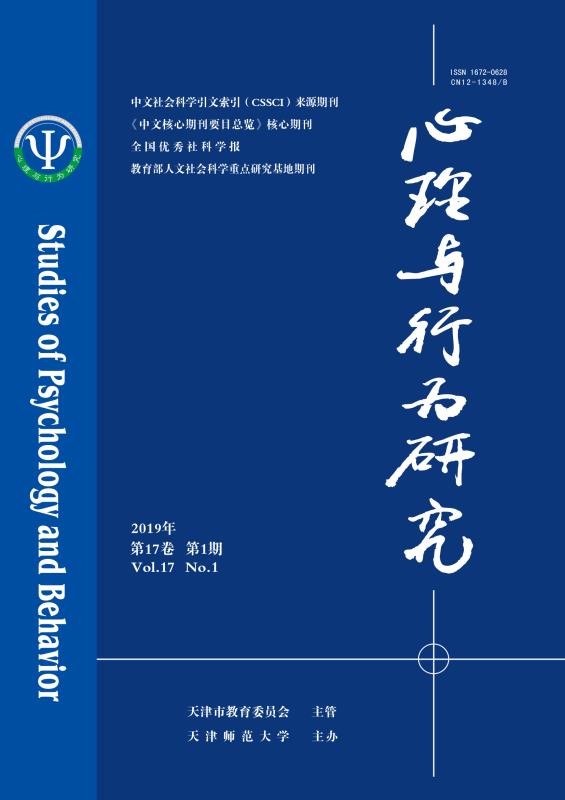|
|
Migration Children's Inferiority and Perceived Academic Self-efficacy: The Moderating Role of Emotion Regulation Strategies
WANG Daoyang, WEI Wei, YIN Xin
2019, 17(1):
48-55.
The study discussed the difference effect of inferiority complex on academic self efficacy (basic sense of ability and control) and the moderating effect of emotion regulation strategies of migration children. The effective questionnaires were 730, and the effective rate was 87.43%. 730 effective subjects aged 9~17 years, average. Results showed:1) The negative predictive effect of inferiority complex on the basic sense of ability and control were significant, and the predictive effect of inferiority complex on the sense of control was significantly higher than that of the basic sense of ability. 2) The predictive effect of the expression suppression strategy (N-restrain, N-vent) on the basic sense of ability was significant. The interaction between N-restrain and inferiority complex was not significant, but N-vent was significant. The predictive effect of the cognitive re-evaluation strategy (P-value, N-neglect, N-value) and expression suppression strategy (P-vent) on the sense of control were significant. And the interaction between P-value and inferiority complex was significant. To sum up, first of all, the negative predictive effect of the migration children' inferiority complex on the sense of control was higher than that on the basic sense of ability, and only the expression suppression (N-restrain, N-vent) had a positive predictive effect on the sense of control. The emotion regulation strategy of expression suppression (N-vent) has a moderating effect on the relationship between inferiority complex and the basic sense of ability, and the expression suppression strategy would occupy a certain cognitive resources, so as to reduce the predictive effect of inferiority complex on the basic sense of ability on the whole. Secondly, the cognitive re-evaluation strategy (P-value, N-neglect, N-value) and expression suppression strategy (P-vent) had a predictive effect on the sense of control of academic self-efficacy of migration children, and the cognitive re-evaluation strategy (P-value, N-value) had a moderating effect on the relationship between inferiority complex and the basic sense of ability. When cognitive re-evaluation strategy works, it would reduce the physiological response, and it would not interfere with the completion of cognitive activities.
|

